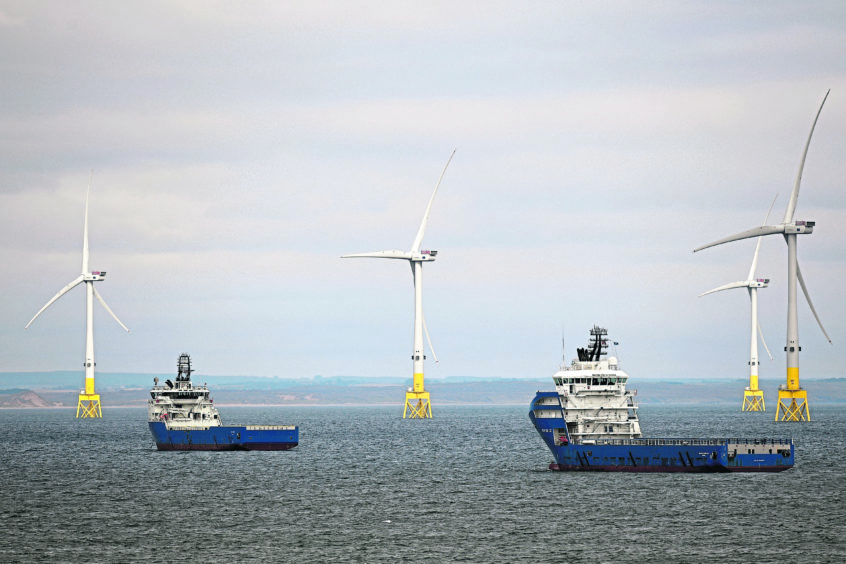
A north-east renewables body is calling on Scotland’s new government to make the sector a top priority ahead of crunch climate talks later this year.
Jean Morrison, chairwoman of Aberdeen Renewable Energy Group (AREG), says the need to develop clean energy solutions is all the more pressing with Scotland hosting COP26.
The United Nations summit is due to be held in Glasgow in November, although there has been speculation that it could be postponed for a second time due to the pandemic.
Over the weekend it was confirmed the SNP had won a historic fourth consecutive term in Holyrood.
However, they fell one short of an overall majority, meaning Nicola Sturgeon may have to rely on support from the Greens in order to make up the numbers.
And while that could be to the detriment of oil and gas, it’s likely to spell good news for the renewables sector.
The north-east is already home to several world-leading renewables projects, including the word’s first two floating offshore wind farms.
Equinor’s Hywind Scotland has been operating off the coast of Peterhead since 2017 while the Kincardine development, which is on course to be the largest in the world, is currently under construction down the coast.
Other notable projects include the Acorn carbon capture and storage project at St Fergus and the Aberdeen Offshore Wind Farm, Scotland’s largest test bed for offshore wind technology.
Ms Morrison said: “In the year when COP26 comes to Glasgow, we want the new government to ensure that developing Scotland’s low carbon energy future is a priority. This will be essential in building resilience and driving the economic recovery from Covid-19, as well as enabling net zero to benefit many generations to come as part of the ‘green industrial revolution’.
“We plan to continue our strong working relationship with Holyrood and engage with incoming MSPs to highlight the major green economic opportunities for the North East and our members.
“The region is already home to over £5 billion of low carbon infrastructure projects and with sufficient governmental support, renewable and low carbon energy can create and preserve jobs, helping to support the future sustainability of the North East economy and make a significant contribution to our net zero targets.”

 © Supplied by AREG
© Supplied by AREG